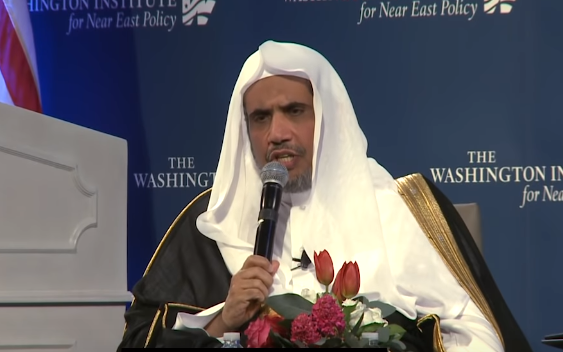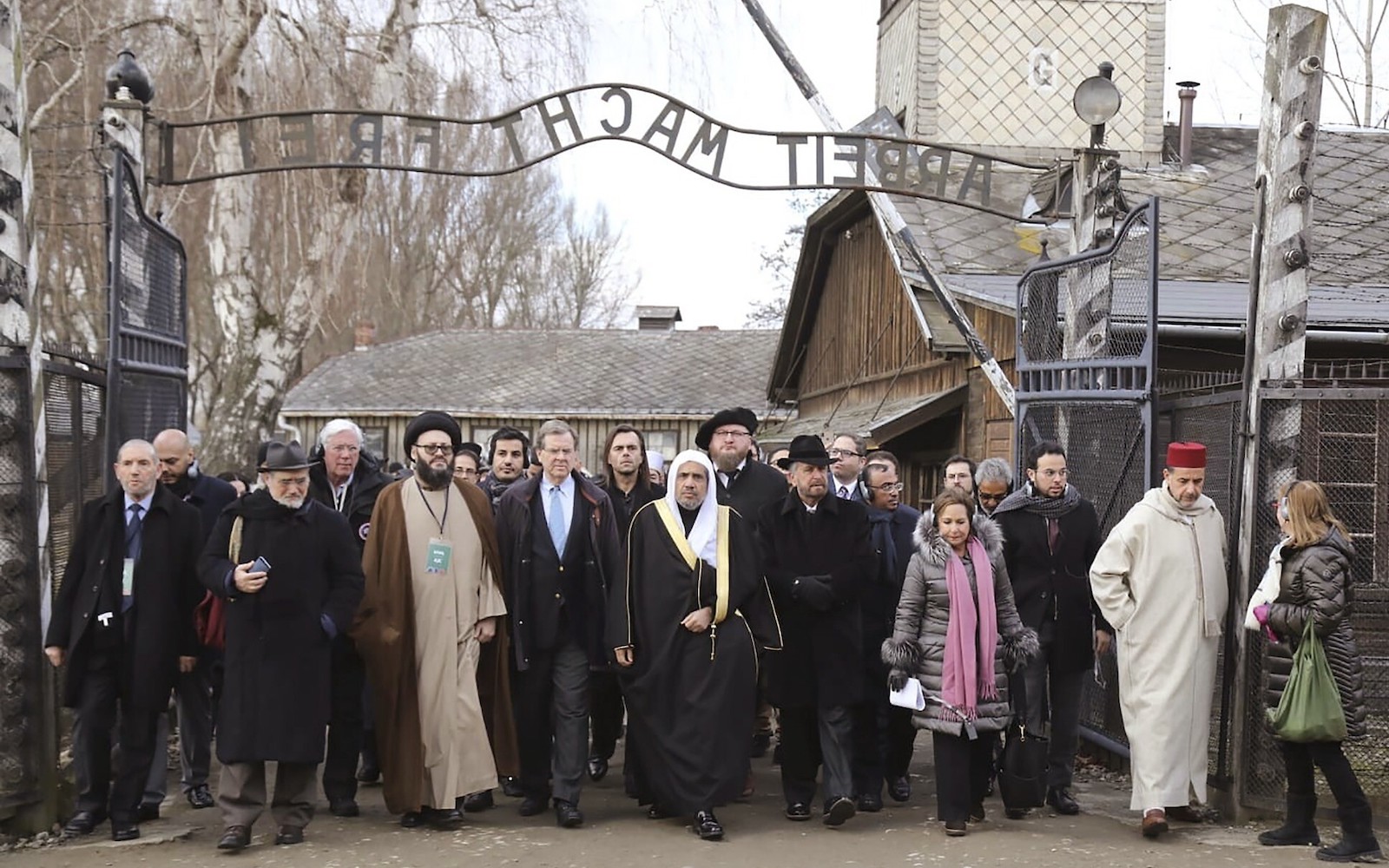On September 2, 2015, the lifeless body of 3-year-old Alan Kurdi, whose family was fleeing the Syrian civil war, was found ashore on a Turkish beach, causing a worldwide shock wave. By that time, at least tens of thousands of people had been killed during the Syrian Civil War, and hundreds of thousands had become refugees.
But it’s easy to forget that ISIS’s ability to exploit sectarian tensions between Iraq’s Sunnis and Shiites in 2013 largely contributed to the domino effect of that tragedy and the events leading up to one of history’s biggest refugee crises. But was inspired.
Make no mistake, communal fault lines are among the most dangerous challenges to peace and stability in the Middle East, with the power to spread across borders, cause widespread radicalization across communities, and dispel a truly global ripple effect. whose destabilizing influence touches far-flung regions of the world.
All this is a surprising backdrop for a small event in Mecca earlier this month.
A gathering called the “Forum of Iraqi Reference”, organized by the Mecca-based NGO Muslim World League, convened 80 of Iraq’s leading religious scholars – both Sunni and Shia. With little fanfare and practically non-existent prior media coverage (seemingly for security reasons), both communities used the common religious base of Mecca to explore a roadmap towards peace and reconciliation.
Building a powerful local national identity in the Middle East is the smartest, most effective route to discredit Iran’s regional power plays.
It was remarkable that it would be in the heart of the Kingdom of Saudi Arabia.
Among others, the participation of prominent figures such as Sheikh Dr. Ahmed Hassan al-Taha from the Iraqi Fiqh Academy, heads of Sunni and Shia endowment offices, and even Dr. Pashtun Sadiq Abdullah, Minister of Endowments and Religious Affairs, even more was amazing. In the Kurdistan region of Iraq.
But the most notable feature of the event was its outcome; An agreement to create a unique Iraqi inter-religious committee composed of the country’s leading cross-sectarian officials. The purpose of this new organization? To prevent the sectarian division from escalating into full-blown conflict, and to support a unified central Iraqi government.
Such a body could not have been built at a more opportune time.
Around the same time as the Mecca event was ending, in Tehran, Iran’s new hardline president, Ibrahim Raisi, was being sworn in, undoubtedly indicating an upcoming acceleration in the regime’s long-standing strategy of exploiting sectarian divisions in Iraq. Had been.
To raise the stakes even further, these developments came just a week after President Biden committed to ending US combat operations in Iraq.
Given the US experience in Afghanistan, where ending US combat operations has led to a resurgence of the Taliban, there is a real fear that the US military presence in Iraq will be greatly reduced, as a result of the dreaded shadow of an oligarchic government. There will be unprecedented strengthening Iranian-backed militias throughout Iraq, placing the nation in a near-permanent orbit of Iranian influence.
But the success of such a strategy depends on distrust, animosity and disintegration in cooperation between religious groups at the local level. This, coupled with a weak shared national identity, is open to the divide-and-conquer strategy of the Iranian regime, allowing it to expand its sphere of influence across the breadth of the Middle East.
This is why the August 4th gathering represents such a remarkable symbolic change – in arguably the most powerful way.
Ending ties between Shia communities of the Middle East and the nation of Iran, and following a strategy of direct engagement with local Shia communities in Arab countries, allowing them to establish their own structures and resolve differences with local Sunni counterparts To empower, fundamentally limits Iran’s singles. The biggest interventionist opportunity in the region.
Building a powerful local national identity in the Middle East is the smartest, most effective route to discredit Iran’s regional power plays. Whether it is Iraq, Syria, Yemen, or Lebanon – where Hezbollah, buoyed by Iran’s new leadership, has recently admitted to firing rockets at Israel – the sectarian divide is, in all cases, the oxygen that has Iran’s interventionist policies have given life, first, to gain a foothold in those countries, then to intensify toxic narratives, and finally to export and recruit militias who are almost impunity to Tehran through proxy. Enables you to work with liberation.

Dr. Muhammad bin Abdul Karim Al-Isa, Secretary General of the Muslim World League, speaks at the Washington Institute for Near East Policy in May 2018 (YouTube screenshot)
But shutting down that oxygen will require a much larger effort, at least to strengthen national identity, which includes communal differences. Unsurprisingly, the “Iraqi Reference Forum” in Mecca focused heavily on this exact topic, with Muslim World League Secretary General Muhammad bin Abdul Karim Issa echoing those sentiments when he said that “today’s event represents Is truth Principles of Islam.… It instructs us to embrace diversity and respect each other’s differences. It tells us to coexist and live in harmony with all.”
In fact, Dr. Issa is no stranger to initiatives that build bridges between religious communities, being the most senior Islamic religious leader ever to visit Auschwitz. Such efforts toward inter-religious cooperation reflect a more liberal, forward-looking narrative to emerge from some Arab countries in recent years, a significant part of an effort to push back against toxic Iranian-inspired narratives in the region. Is.

In this January 23, 2020, file photo, a delegation of Muslim religious leaders gather at the gate leading to the former Nazi death camp in Auschwitz, together with a Jewish group that organizers called ‘the most senior Islamic leadership delegation’ . Former death camp in Oswicim, Poland. (American Jewish Committee via AP, File)
Ultimately, good relations between Sunnis and Shias in Iran’s neighboring Arab countries are the most effective antidote to the regime’s geopolitical plans. In the absence of a strong US military presence and the most flamboyant Iranian leader faced in years, it is a realization that regional and international powers must fully embrace. And that makes the efforts in Mecca last week under the auspices of the Muslim World League not only desirable, but necessary.
—–
paulo casca He is a former member of the European Parliament, where he chaired the Delegation for Relations with the NATO Parliamentary Assembly – among others. He is the author of several books and reports on economics and international politics, particularly on Iraq, which includes, among others, ‘The Hidden Invasion of Iraq’ (2008). Paulo Kasaka is also the founder and executive director of the “South Asia Democratic Forum” and the founder of the Association for International Cooperation registered in Brussels ARCHumankind, the ‘Coalition to Renew Cooperation between Humankind’. He is currently the Vice President of the Portuguese Friends of Israel.
Doctor. Maurizio Geric, is a former analyst at NATO Allied Command on MENA/Africa. Dr Gerry was also previously an analyst for the Italian Defense General Staff and has over 20 years of experience in research and civilian operations on peace and security, the international order, democratization, human rights, and collective defense (particularly in the Middle East and North Africa). . He has given research to various think tanks including The Carter Center and The Washington Institute for Near East Policy.